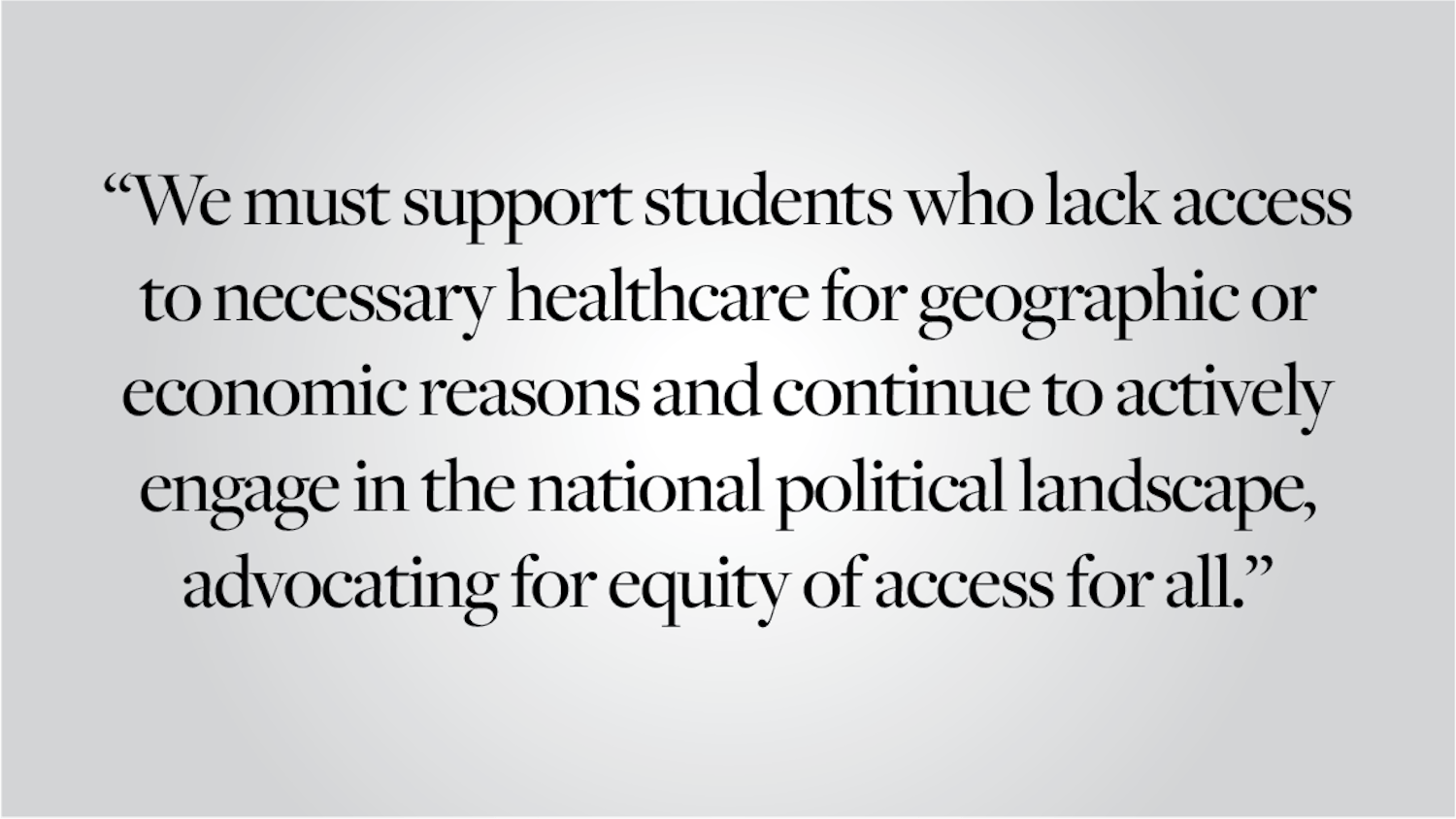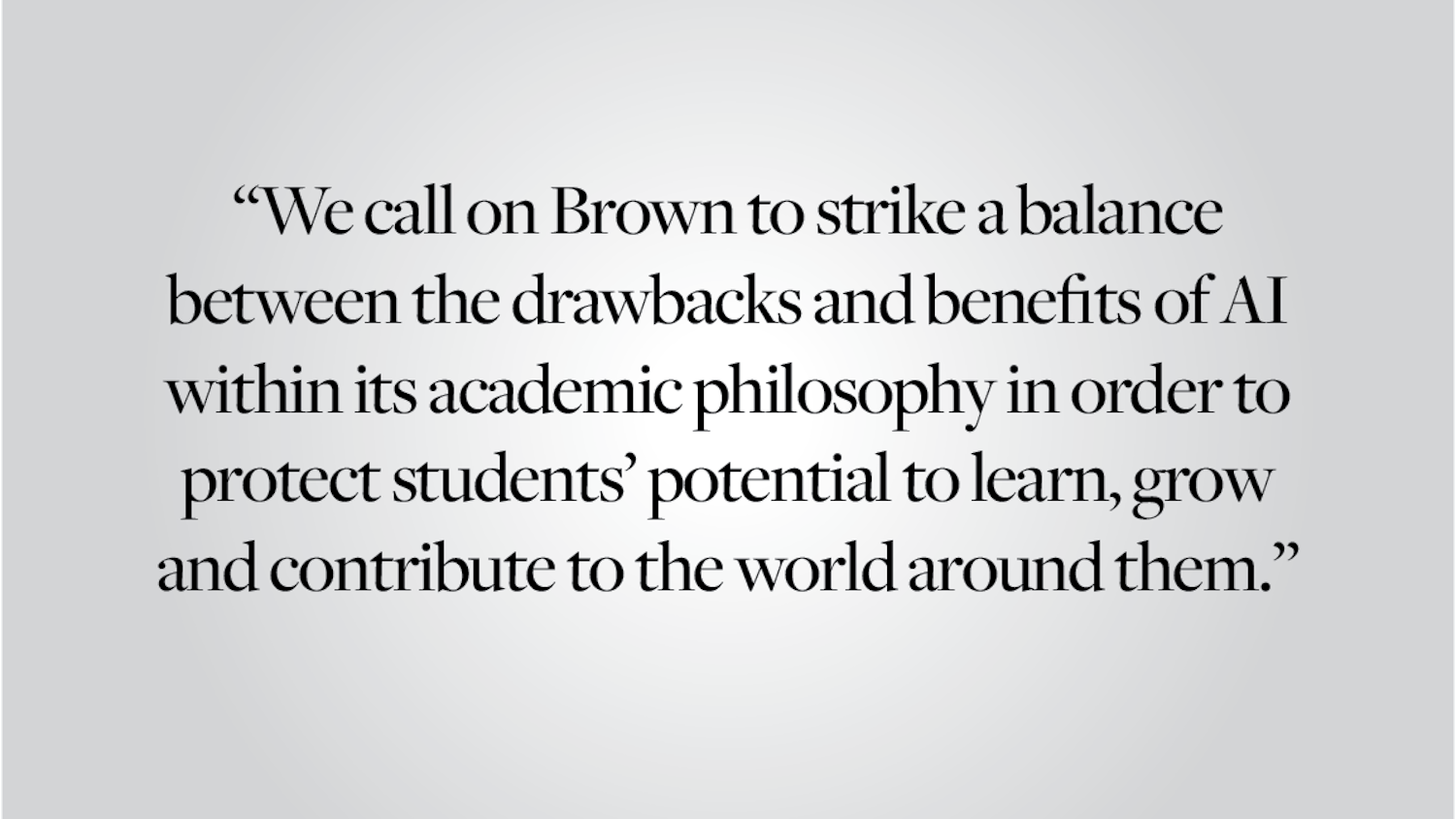Last week, President Christina Paxson announced a renewed commitment to expanding opportunities for students receiving need-based financial aid. By the summer of 2018, these students will be supported for at least one summer to pursue internships or research programs that are not adequately funded. This program is an important step toward ensuring lower-income Brown students are not denied opportunities available to their peers. But University-provided funding could obscure the broader problem — the replacement of paid internships and post-college jobs with unpaid and sometimes exploited internships — and further disadvantage students who come from universities with fewer resources.
Given the ubiquity of internships, Brown’s new commitment will help students receiving financial aid remain competitive with their peers. Over three-fourths of students at four-year colleges and universities will intern at some point during their college career, while three-fourths of employers rank work experience as the most important factor in hiring post-college workers. Students who need to work to support family members or pay for living expenses for the rest of the year may be unable to spend a summer working without pay. Further, a standard three-month internship in Washington can cost roughly $4,000, not including travel expenses. Students receiving assistance from Brown would benefit from having more access to the nonprofit, art and publishing sectors, which are most likely to offer unpaid positions.
But in recent years, unpaid internships have come under greater scrutiny and are often criticized as exploitative. Under federal law, unpaid internships are required to meet six specific criteria ensuring that interns do not assume the work of previously paid employees and that the employer “derives no immediate advantage” from the intern’s duties. In practice, however, these standards are rarely enforced. According to Kathryn Edwards of the Economic Policy Institute, unpaid interns “are often not considered employees and therefore are not protected by employment discrimination laws,” the New York Times reported in 2010. Thus, unpaid interns are not protected by laws that bar discrimination or harassment. Exploited students are often unwilling to press for better conditions, fearing that their future employment prospects will be irreparably harmed.
Currently, about half of interns work in unpaid positions, but recent court rulings may force employers to give their employees at least minimum wage. Last June, a federal judge ruled in favor of two unpaid interns at Fox Searchlight Pictures who worked on the movie “Black Swan” and charged in his ruling that the scope of unpaid positions should be very limited. Hearst Magazines, Elite Model Management, Charlie Rose and the Fox Entertainment Group have all been challenged by former interns who claim they performed the duties of regular employees.
The Department of Labor should commit to strict enforcement of its rules for unpaid internships rather than allow corporations to save money on the backs of college students struggling to break into competitive industries. In the interim, Brown’s commitment is a welcome opportunity for students who need help the most. But we hope that the University will take this opportunity to advocate for all of its students to ensure that they are paid fairly for a summer’s work.
ADVERTISEMENT




